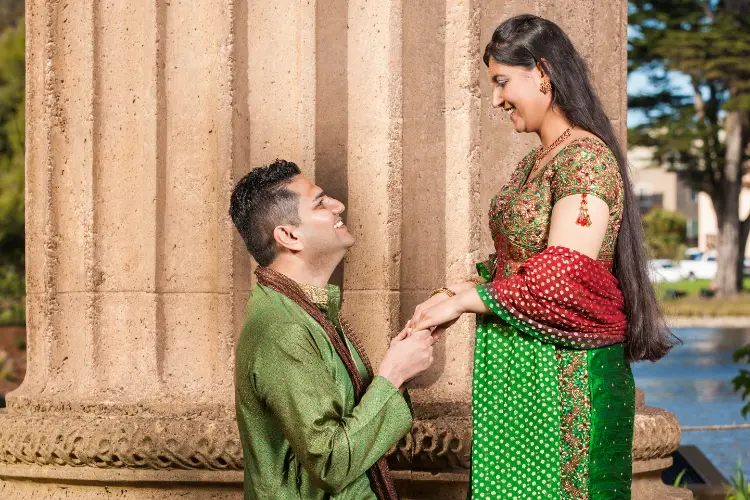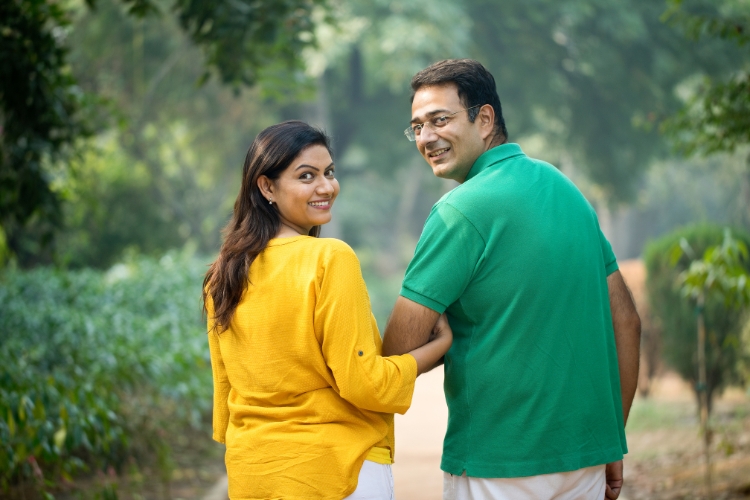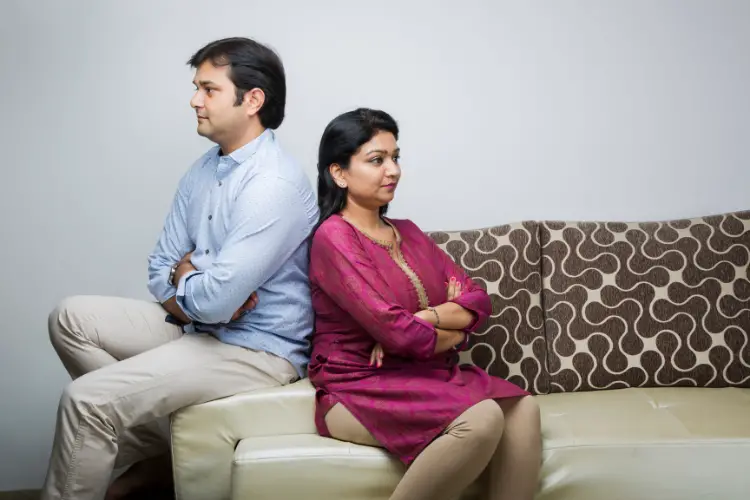Arranged marriages have been a longstanding institution in many cultures, often seen as a means to secure financial stability and social status rather than a union based on romantic love.
While they can offer a streamlined process for finding a partner and the potential for cultural enrichment, they also come with a range of disadvantages.
From emotional costs to legal complexities, this article explores the multifaceted nature of arranged marriages and seeks to understand the compromises involved in tying the knot within this traditional framework.
Key Takeaways
- Arranged marriages often prioritize financial security and familial alliances over personal choice and romantic love.
- Matchmaking services can provide a curated selection of partners, but they also introduce financial costs and limit individual agency.
- Cross-cultural arranged marriages offer opportunities for cultural enrichment but can face legal challenges and communication barriers.
- The emotional toll of adjusting to life with a stranger and conforming to family expectations can be significant in arranged marriages.
- While there are success stories, the need for compromise and the potential for struggle highlight the complex nature of arranged marriages.
The Historical Context of Arranged Marriages

Matrimonial Traditions Across Cultures
Arranged marriages have long been embedded in the fabric of many societies, serving as a bridge between families and communities. The adaptation of arranged marriages has seen them evolve from rigid traditions to more nuanced practices that consider individual preferences. In South Asian cultures, for instance, arranged marriages are not just a union of two individuals but a strategic alliance between families, often with a focus on preserving cultural heritage and social status.
Matrimonial traditions vary significantly across the globe, reflecting the diversity of cultural norms and values. For example, while some cultures may emphasize the importance of horoscope matching, others might prioritize social and economic compatibility. The table below illustrates a few cultural practices associated with arranged marriages:
| Culture | Practice | Focus |
|---|---|---|
| South Asian | Horoscope matching | Compatibility |
| Middle Eastern | Family negotiations | Alliance |
| East Asian | Matchmaker involvement | Harmony |
The essence of these traditions lies in the belief that marriage is more than a personal choice; it is a communal decision that weaves together the social fabric of the community.
While the core concept of arranged marriages remains, the methods and criteria have shifted, accommodating modern values and individual desires. This shift reflects a broader societal transformation from prioritizing financial security and familial ties to incorporating elements of romantic love and personal fulfillment.
The Shift from Financial Security to Romantic Love
In the tapestry of human relationships, the evolution from seeking financial security to valuing romantic love in marriages marks a profound shift. Historically, marriages were often transactions, ensuring economic stability and social alliances. However, the emergence of romantic love as a foundation for marriage has redefined the institution’s very essence. This transition reflects a broader societal move towards individualism and personal fulfillment.
The concept of love in marriage has been explored through various lenses, from the spiritual journeys described by philosophers like Socrates to the tumultuous emotions captured in literature. Love is not a static destination but a dynamic journey, encompassing everything from the initial physical attraction to the deeper appreciation of another’s soul and character. Love has become the cornerstone of modern unions, often prioritizing emotional connection over material considerations.
- Physical Attraction
- Emotional Bonding
- Intellectual Compatibility
- Spiritual Connection
The quest for love in arranged marriages is a complex and nuanced experience, often involving a delicate balance between cultural expectations and personal desires. Studies involving participants from diverse backgrounds reveal the intricate ways in which love can blossom, even within the framework of arranged unions.

The Role of Matchmaking Services in Modern Arrangements
In the contemporary landscape of love and marriage, matchmaking services have undergone a significant transformation. No room for outdated stereotypes – today’s matchmakers aren’t arranging marriages, but facilitating meaningful connections based on shared values, goals, and personal compatibility. This shift reflects a broader societal progression from marriages for convenience to unions rooted in mutual affection and respect.
Pros and Cons of Modern Matchmaking Services:
- Streamlined process for finding a compatible partner
- Access to a pool of potential matches curated by professionals
- Cost associated with using matchmaking services
- Limited control over the selection process
The expertise of matchmaking agencies can be invaluable in navigating the complexities of dating and relationships, offering a modern twist to the age-old practice of arranged marriages.
While the mail-order bride systems of the past were focused on alliances and financial stability, modern matchmaking services emphasize the importance of personal choice and emotional well-being. The use of technology and professional expertise has revolutionized the way individuals connect, allowing for a more personalized and thoughtful approach to finding a life partner.
Cultural Considerations and Legal Compliance

Navigating Cultural Norms and Expectations
In the realm of arranged marriages, navigating cultural norms and expectations is a delicate dance. Couples often find themselves at the intersection of preserving traditional values and embracing their personal beliefs. This balancing act can be particularly challenging when it involves familial disapproval, a common disadvantage highlighted in discussions about love marriages.
By being open to new experiences and traditions, couples can cultivate a sense of unity while celebrating their individuality.
The following list outlines the pros and cons of cultural integration in arranged marriages:
- Pros:
- Cultural enrichment through exposure to different traditions.
- Strengthened bond through shared experiences.
- Cons:
- Potential challenges in reconciling differing cultural norms.
- Communication hurdles due to language disparities.
Embracing diverse traditions, beliefs, and practices can enrich the relationship experience by offering new perspectives on life. However, the emotional turbulence that may arise from cultural clashes should not be underestimated. It is essential for couples to engage in open communication about their expectations, which includes being informed about each other’s rights and the legalities of their union.
Language Barriers and Communication Challenges
In the realm of arranged marriages, language barriers can present significant hurdles to effective communication, particularly in cross-cultural unions. The emotional connection between partners may suffer when they are unable to express themselves clearly or understand each other’s linguistic nuances.
- Overcoming language barriers often requires a proactive approach, including:
- Taking language classes or engaging in language exchange programs.
- Practicing conversational language skills at home.
- Utilizing language-learning apps together.
Patience and willingness to learn are essential in bridging the communication gap, fostering not just linguistic competence but also emotional intimacy.
Couples can seek support from multicultural communities or organizations, which provide resources and platforms for language practice. This support is crucial in navigating the complexities of communication in an arranged marriage. Celebrating cultural diversity, such as sharing childhood dishes or participating in cultural events, can also strengthen the bond between partners.
Adhering to Marriage Laws in Cross-Cultural Unions
When embarking on the journey of a cross-cultural union, particularly with a Venezuelan partner, comprehending and adhering to marriage laws is paramount. These laws are the framework that ensures a marriage is legally recognized, both domestically and internationally. Failure to comply can lead to a marriage being invalidated, which underscores the importance of being well-informed and seeking professional guidance.
Legal counsel is invaluable in navigating the complexities of international marriage laws. Initiating an international marriage requires several key documents to ensure legal compliance in both your home country and abroad. Typically, you’ll need:
- A valid passport
- Birth certificate
- Certificate of no impediment to marriage
- Divorce decree, if applicable
Being informed about your partner’s rights, as well as your own, is crucial for a fair and transparent relationship. Open communication about legal expectations is the cornerstone of trust and mutual respect.
Cultural differences can significantly influence legal matters in relationships with individuals from diverse backgrounds. Understanding these nuances is essential for addressing potential challenges proactively and ensuring a smooth legal process.
The Emotional Cost of Arranged Marriages

The Impact on Personal Choice and Autonomy
Arranged marriages often place significant constraints on an individual’s personal choice and autonomy. The freedom to select one’s life partner is a fundamental aspect of self-expression and happiness, yet this liberty is frequently compromised in the context of arranged unions. The process can lead to a sense of disempowerment, as the decision-making is typically influenced or controlled by family members or matchmakers.
- The individual’s preferences may be secondary to family expectations.
- Compatibility is assessed through a lens of social and economic criteria, rather than personal connection.
- The pressure to accept the arranged match can override personal desires.
In arranged marriage systems, the social principles fundamental to the decision-making process often overshadow the individual’s aspirations and choices. This can result in a life trajectory that feels more imposed than chosen, with profound implications for one’s sense of agency and fulfillment.
Adjusting to Life with a Stranger
Entering into an arranged marriage often means starting a life with someone you barely know. This adjustment period can be fraught with challenges as each partner learns about the other’s habits, preferences, and expectations. The process of building a relationship from the ground up requires patience and open communication.
Adaptability is key when navigating this new partnership. Couples may find themselves having to compromise on daily routines, cultural practices, and even core values. The success of such a marriage often hinges on the willingness of both individuals to grow together rather than apart.
- Understanding each other’s backgrounds
- Establishing mutual respect
- Learning to communicate effectively
- Sharing responsibilities equitably
- Creating shared goals and values
The journey of creating a loving partnership from an arranged marriage is not just about romance; it’s about building a foundation of trust and understanding that can withstand the tests of time.
The Pressure to Conform to Family Expectations
The pressure to conform to family expectations in arranged marriages can be immense. Families often have a significant influence on the choice of a spouse, and individuals may feel compelled to accept these decisions out of respect or obligation. This can lead to a sense of loss of personal autonomy, as the desire to please one’s family overshadows individual preferences.
Culture plays a pivotal role in reinforcing the importance of family expectations. In many societies, loyalty to family is seen as a virtue, and going against family wishes can be perceived as a betrayal. This cultural backdrop can make it challenging for individuals to voice their true feelings or make choices that align with their personal desires.
- The fear of letting down loved ones
- The struggle to balance personal happiness with family duties
- The emotional toll of suppressing one’s preferences
The journey towards marital harmony can be overshadowed by the need to adhere to family expectations, often at the cost of one’s mental health and well-being.
While arranged marriages are evolving, the remnants of traditional expectations still loom large, making it difficult for some to navigate their path to happiness within the framework of an arranged union.
Financial Implications and Social Contracts

The Economics of Matchmaking Services
The use of professional matchmaking services has become a significant aspect of the modern arranged marriage landscape. The allure of these services lies in their promise to simplify the search for a compatible partner. However, this convenience comes with a price tag that can vary widely depending on the agency and the level of service provided.
- Pros:
- Access to a pool of potential matches curated by professionals
- Personalized services tailored to individual preferences
- Cons:
- High costs associated with premium services
- Potential for limited control over the selection process
The economic implications of these services are not to be underestimated. For many, the financial commitment is justified by the expertise of the agencies in creating matches that have a higher likelihood of a successful union. Yet, for others, the costs may outweigh the perceived benefits, leading to a reconsideration of traditional matchmaking methods.
While the initial investment in a matchmaking service may be substantial, the long-term emotional and financial benefits of a compatible match could potentially offset the upfront costs.
Unconventional Agreements and Modern Twists
The landscape of arranged marriages has evolved to embrace unconventional agreements that reflect the complexities of modern relationships. Boldly stepping away from traditional formats, these arrangements often incorporate elements that cater to individual preferences and contemporary values.
- Flexible roles within the marriage
- Personal development plans for each partner
- Open communication channels about expectations
- Financial independence and contribution agreements
These modern twists are not just about bending rules; they’re about crafting a union that respects the uniqueness of each partner.
The emergence of various forms of marriage, as highlighted by a Forbes article on alternative marriages, indicates a shift towards more personalized unions. This trend is not only about accommodating different lifestyles but also about recognizing the diverse realities of modern couples.
Assessing the True Value of a Curated Match
When evaluating the true value of a curated match, one must consider both the tangible and intangible aspects. The cost of matchmaking services is a clear, quantifiable factor, but the potential for a harmonious partnership is less easily measured. Matchmaking services offer a streamlined process and access to a pool of potential matches, yet they come with a price tag and often limited control over the selection process.
- Pros:
- Streamlined process for finding a compatible partner
- Access to a pool of potential matches curated by professionals
- Cons:
- Cost associated with using matchmaking services
- Limited control over the selection process
The personal life of individuals may also be impacted, as the pursuit of a suitable match can be time-consuming and exhausting, especially for those in higher social classes who may have additional social obligations. The disadvantages, such as the lack of personal time and the fatigue from constant social engagements, must be weighed against the benefits.
Embracing the journey of finding a partner through matchmaking can lead to meaningful connections, as partners discover common interests and values. However, it is crucial to recognize that this path is not devoid of challenges and requires a careful assessment of what one truly seeks in a marriage.
Reconciling the Pros and Cons

Weighing the Benefits Against the Drawbacks
When considering arranged marriages, it is crucial to balance the scales between the advantages and the challenges they present. Pros such as cultural enrichment and the potential for a strengthened bond through shared experiences must be weighed against cons like the difficulty in reconciling different cultural norms and communication barriers.
- Pros:
- Cultural enrichment
- Strengthened bond
- Cons:
- Cultural norm challenges
- Communication hurdles
While the process of finding a partner may be streamlined and the pool of potential matches is curated by professionals, the cost of matchmaking services and the limited control over the selection process cannot be overlooked. The key is to assess whether the benefits of such arrangements justify the emotional and financial investment involved.
In the quest for marital harmony, the delicate balance between personal choice and familial duty often becomes the fulcrum upon which the success of an arranged marriage teeters.
Personal Anecdotes of Success and Struggle
The tapestry of arranged marriages is woven with personal stories that reflect a spectrum of experiences. Each narrative is a unique blend of triumphs and trials, painting a vivid picture of the intricate dance between success and struggle. For some, arranged marriages have blossomed into lifelong partnerships, where the initial absence of choice gave way to deep, enduring love.
Resilience is often the common thread in these stories, as couples navigate the complexities of building a relationship with someone they did not choose. The journey is seldom straightforward, with many facing the daunting task of aligning their lives with a virtual stranger. Yet, it is through these challenges that some find strength and a shared purpose.
- A husband who lost his job but started a new business to support his family.
- A couple facing health issues, yet standing strong together.
- Individuals who found personal growth and a deeper appreciation for life through their marital struggles.
The essence of these anecdotes lies not in the absence of hardship, but in the capacity to overcome it together. The resilience displayed by these couples serves as a beacon of hope for those embarking on the journey of an arranged marriage.
Finding a Middle Ground: Compromise in Arranged Marriages
In the quest for marital harmony, finding a middle ground through compromise is essential, especially in the context of arranged marriages. The key to success lies in the ability to value and honor the opinions, beliefs, and feelings of both partners, creating an atmosphere of equality and understanding.
- Conflict Resolution: Conflicts are an inevitable part of any marriage. Approaching these with a positive attitude and a willingness to find mutually acceptable solutions is crucial.
- Cultural Learning: Cultural disparities should be seen as opportunities for learning and growth, rather than as barriers.
- Legal Compliance: It is important to ensure that all aspects of the marriage comply with relevant laws, to avoid any legal complications.
Embracing differences and working towards common goals can transform an arranged marriage from a mere social contract into a journey of mutual discovery and shared joy.
While there are no guarantees in any marriage, those who approach arranged unions with an open mind and a commitment to compromise may find themselves not just living with a partner, but truly loving them.
Conclusion
In conclusion, while arranged marriages have historically served practical purposes and continue to be a cultural norm in many societies, they come with inherent disadvantages that cannot be overlooked.
The romanticization of matrimony for domestic and financial security often overshadows the individual’s right to choose based on love and personal compatibility. The stories and experiences shared in this article highlight the complexities and challenges faced by those in arranged marriages, from cultural clashes and communication barriers to the struggle for emotional fulfillment.
It is crucial to recognize that the essence of marriage should be a union of mutual respect, understanding, and love, rather than a transactional arrangement. As we move forward, it is important to foster environments where individuals have the freedom to tie the knot with compromise, ensuring that both love and practicality can coexist in harmony.
FAQs:
What are the historical reasons for the prevalence of arranged marriages?
Historically, arranged marriages were common due to the emphasis on marrying well for domestic and financial security rather than for love. This practice was aimed at enhancing social status and securing economic stability.
What are some pros and cons of using matchmaking services in arranged marriages?
Pros include a streamlined process for finding a compatible partner and access to a pool of potential matches curated by professionals. Cons involve the costs associated with using these services and limited control over the selection process.
What are the legal considerations in cross-cultural arranged marriages?
Cross-cultural arranged marriages must comply with marriage laws that vary by country, which can include legal age, consent, and documentation requirements. It’s essential to ensure that the union is legally recognized in both cultures.
What emotional challenges can arise from an arranged marriage?
Individuals may face emotional challenges such as a lack of personal choice and autonomy, the difficulty of adjusting to life with a stranger, and the pressure to conform to family expectations.
How do arranged marriages impact personal narratives and experiences?
Arranged marriages can significantly impact personal stories, with individuals like Maya Mirza facing the tension between cultural expectations and personal desires for love and compatibility.
Are there any unique or unconventional agreements in modern arranged marriages?
Yes, some modern arranged marriages include unique agreements, such as an Indian couple’s ‘one pizza a month’ wedding contract, which, while not legally binding, reflects a personalized and humorous aspect of their union.


